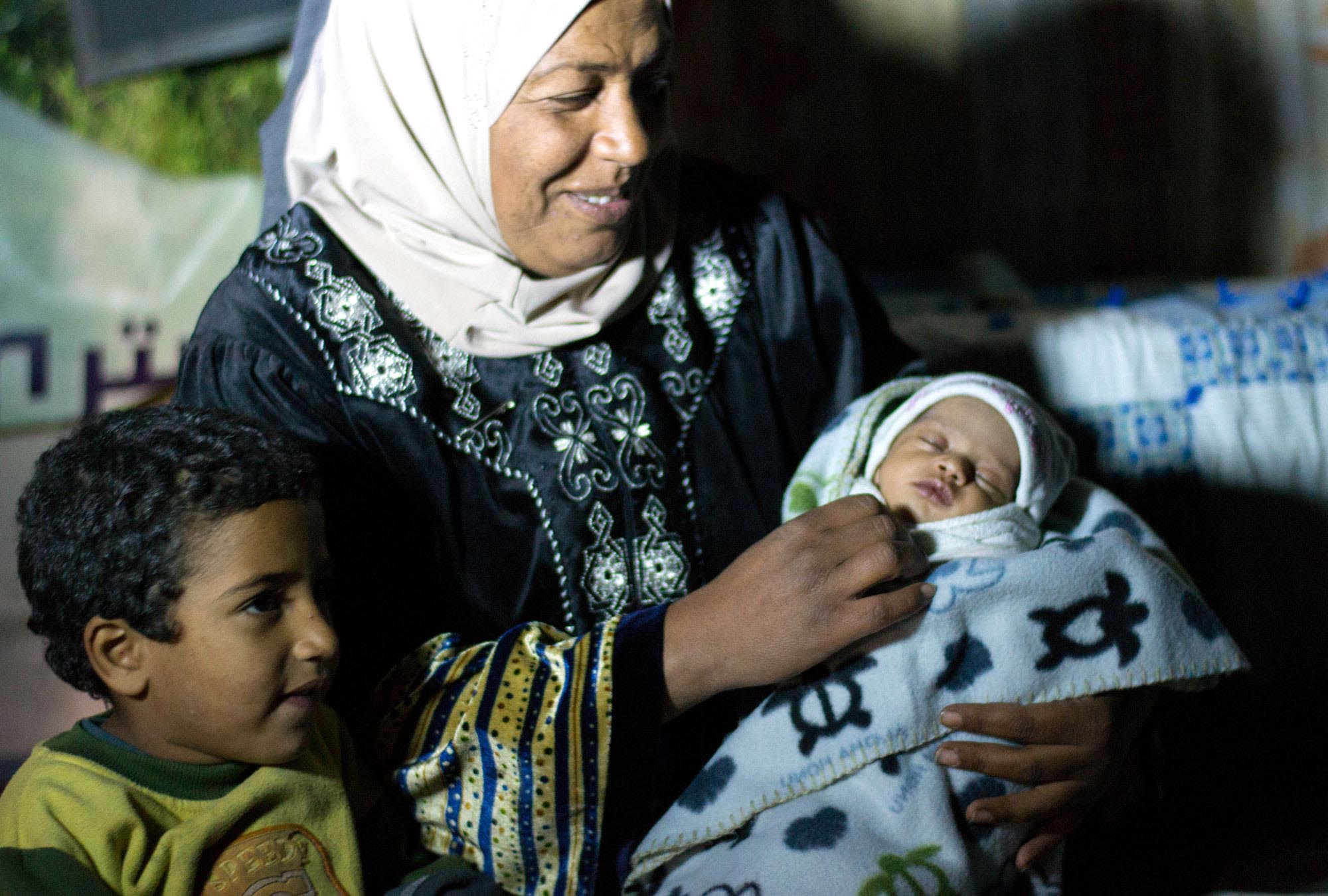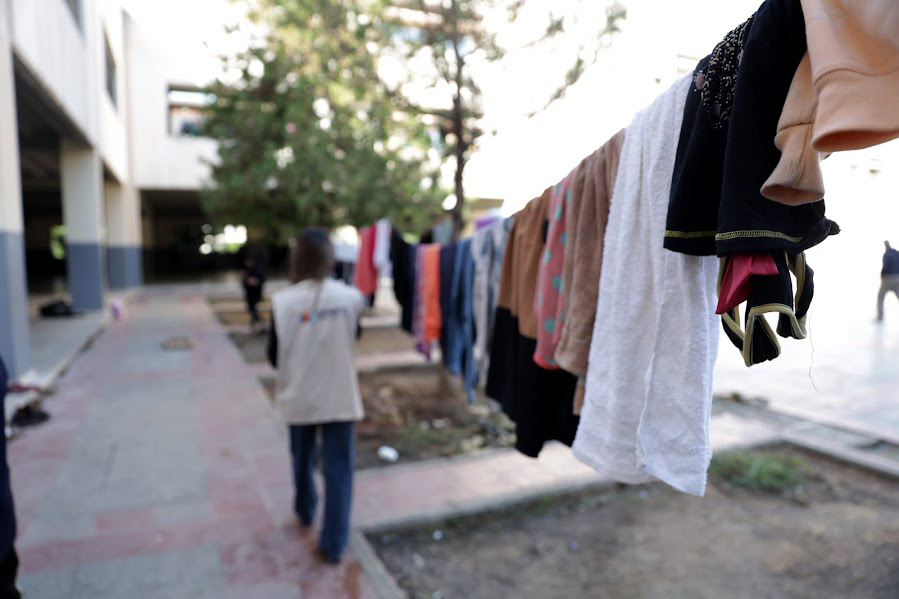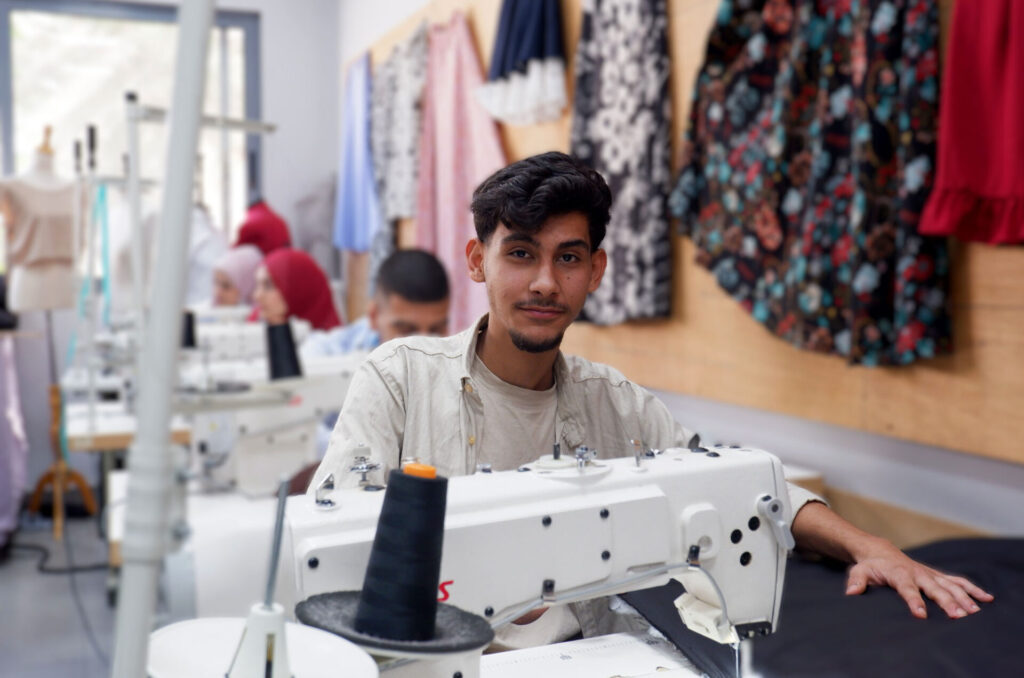Mar, 2014
Adra’s leg was injured while out shopping for food in Yarmouk camp last July when shooting erupted there. Like more than one million other Syrian war refugees, Adra and her family decided it was time to seek safety elsewhere and fled the Syria conflict. She was three months pregnant but that did not stop her or her husband and four children from fleeing across the border and into Lebanon’s Ein El Hilweh refugee camp.
Ein El Hilweh, built in 1966, is the largest Palestinian camp in Lebanon, with nearly 70,000 residents. Its living conditions are bleak, its services inadequate. And, it is one of the most dangerous camps in the country. Today, Ein El Hilweh is hosting the largest number of Palestinian refugees from Syria's conflict with over 7,000 newcomers.
Adra’s family used to own a house in Syria, but left all their belongings behind and arrived in Lebanon with just the clothes they were wearing. Families in Ein El Hilweh offered them a place in an open field inside the camp to pitch a tent. The family combined plastic sheets, blankets found in the garbage and concrete blocks to construct an improvised shelter. They are not alone. Dozens of other families have erected tents in the rubble-filled field, creating a makeshift camp within a camp for families from Syria.
Adra is anemic and says her health has deteriorated since her injury, provoking the premature delivery of her baby Leen, who weighed only two kilograms (less than 4.5lbs) when she was born a month early during the cold, damp winter.
Warm Clothes and Blankets Among Relief Supplies
Adra keeps her baby wrapped in the warm baby clothes and blankets delivered by Anera. “She is still very weak,” explains her mother, looking at the sleeping baby with love and care. “I am breastfeeding her so she can grow strong.”
Anera partnered with the community-based organization Najdeh Association to provide relief kits to Adra and 2,300 Palestinian families from Syria in Ein El Hilweh and nearby gatherings. Each kit included winter blankets, quilts, heaters, rechargeable emergency flashlights, hygiene items and warm clothes for women and children to help them cope with the cold months of winter. The relief supplies were composed of items purchased thanks to a grant from the United Nations Office for the Coordination of Humanitarian Affairs (UNOCHA) as well as in-kind donations of quilts, baby care kits, personal care kits and toothpaste donated by Lutheran World Relief and shipped with the support of Middle East Children’s Alliance (MECA).
Adra says the flashlights are proving a useful tool since there is little daylight in the tents and electricity in the camp is often cut for hours. “We used to have to buy candles for about $1 a day,” explains Adra. “Now we can recharge the flashlight when the power is on and it lasts for more than 12 hours.”
Like almost every Palestinian refugee from Syria, Adra and her husband cannot find work in Lebanon so the family survives on meager savings and humanitarian aid. The assistance, she says, is helping them focus on other basic needs, like food and health care.
Adra confesses that even in Lebanon she fears for her family’s safety. The spillover of Syria’s factional conflicts, she says, is making the camp violent and unstable. “There is no security in Ein El Hilweh,” she says. “At night, I sleep with my clothes on so I’m ready to run at any moment.”
As the Syrian conflict enters a fourth year, refugees in Lebanon still cling to the hope of a better future. Adra’s shelter is filled with laughing children and friendly neighbors who stop by to offer support.
A friend smiles sadly, “We Palestinians know how to build a lot out of nothing.”




